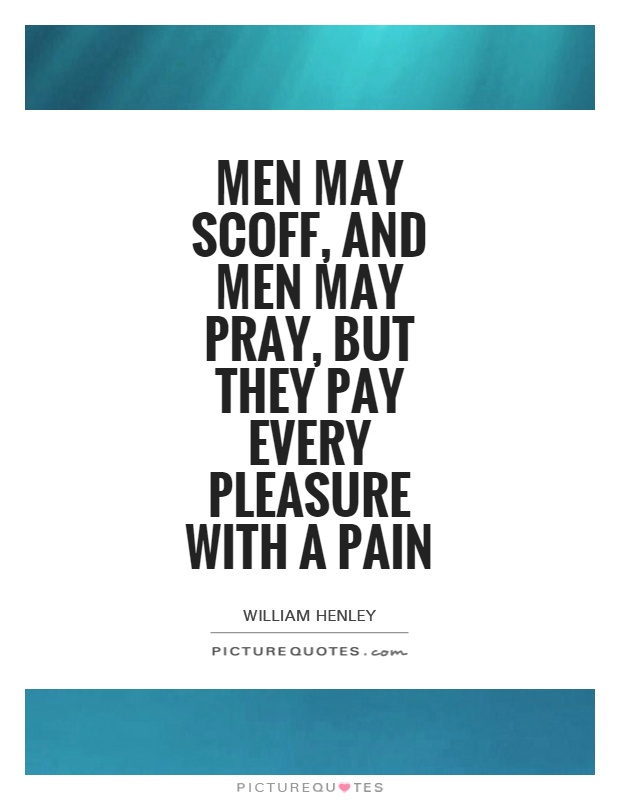Men may scoff, and men may pray, but they pay every pleasure with a pain

Men may scoff, and men may pray, but they pay every pleasure with a pain
The quote "Men may scoff, and men may pray, but they pay every pleasure with a pain" holds a deep and profound meaning that resonates with the life and works of William Henley. Henley was a British poet, critic, and editor who is best known for his poem "Invictus," which has inspired countless individuals with its message of resilience and determination in the face of adversity.In the context of Henley's life, this quote can be seen as a reflection of the struggles and hardships he faced throughout his life. Henley was plagued by health issues from a young age, including tuberculosis of the bone which resulted in the amputation of one of his legs. Despite these physical challenges, Henley remained resilient and determined to live life to the fullest.
The quote also speaks to the idea that every pleasure in life comes with a cost or consequence. In Henley's case, the pain of his physical ailments was a constant reminder of the fragility of life and the fleeting nature of pleasure. However, Henley did not let his pain define him or hold him back. Instead, he used his experiences as inspiration for his poetry and as a means of connecting with others who were facing their own struggles.
Henley's poem "Invictus" is a testament to his unwavering spirit and refusal to be defeated by his circumstances. The poem's famous lines, "I am the master of my fate, I am the captain of my soul," encapsulate Henley's belief in the power of the human spirit to overcome adversity and find strength in the face of pain.












 Friendship Quotes
Friendship Quotes Love Quotes
Love Quotes Life Quotes
Life Quotes Funny Quotes
Funny Quotes Motivational Quotes
Motivational Quotes Inspirational Quotes
Inspirational Quotes